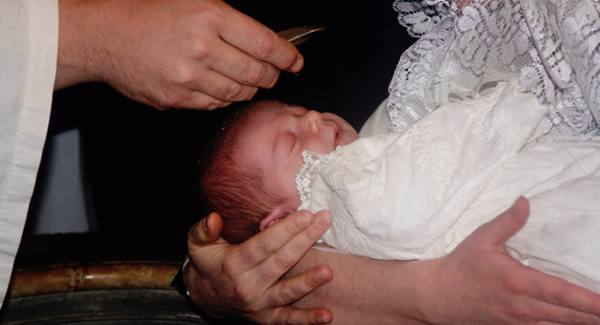The biblical reason why Catholics baptize infants

Infant baptism has been practiced by the Catholic Church and others from the very beginning.
Following the commission of Jesus Christ, the Catholic Church from the very beginning has incorporated the sacrament of Baptism into her primary mission. This is clearly evident in the writings of the New Testament, which highlight a baptism without any age limit.
For example, in the book of Acts St. Luke writes about the baptism of an entire household, “One who heard us was a woman named Lydia, from the city of Thyati′ra, a seller of purple goods, who was a worshiper of God. The Lord opened her heart to give heed to what was said by Paul. And when she was baptized, with her household” (Acts 16:14-15).
St. Paul similarly writes, “I did baptize also the household of Stephanas” (1 Corinthians 1:16).
Many biblical scholars agree that an entire household would have included people of every age. Furthermore, Catholics retained the tradition of infant Baptism throughout the centuries and never ceased in its practice.
The Catechism of the Catholic Church affirms this practice based on scripture and historical tradition, “The practice of infant Baptism is an immemorial tradition of the Church. There is explicit testimony to this practice from the second century on, and it is quite possible that, from the beginning of the apostolic preaching, when whole ‘households’ received baptism, infants may also have been baptized” (CCC 1252).
The Church has always seen infant Baptism as a great gift and responsibility, something that “accords with [parents’] role as nurturers of the life that God has entrusted to them” (CCC 1251).
It is a beautiful tradition in the Catholic Church, one that recognizes the many graces received at Baptism, making room for the Holy Spirit to guide the heart of the child for the rest of their lives.
- Aleteia.org PHOTO: Matthew Doyle








